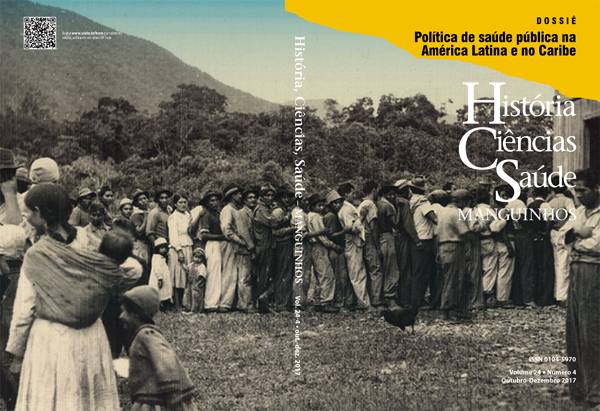Nov 2014
Jaime Benchimol * | História, Ciências, Saúde – Manguinhos Blog
Edited by Vivian Mannheimer | História, Ciências, Saúde – Manguinhos Blog
Helen M. Rozwadowski’s interest in the ocean began on the shores of Lake Erie, one of the Great Lakes in the United States, and she was shocked to discover the saltiness of the ocean during a childhood trip to the Atlantic Coast. She read Herman Melville’s Moby-Dick, visited the replica of the U.S. Brig Niagara, which fought in the Battle of Lake Erie in the War of 1812, and dreamed of the ocean.
Helen is now an Associate Professor of History and Maritime Studies at the University of Connecticut. Her book, Fathoming the Ocean: The Discovery and Exploration of the Deep Sea (2008), won the History of Science Society’s Davis Prize for best book directed to a wide public audience. She has organized very recently a beautiful special section in Isis, from the University of Chicago, on the role of the Ocean in the history of science. Helen is also a member of the International Commission for the History of Oceanography (ICHO).
You are a reference for Brazilian historians of science. So the first question is: what led you to become a specialist in oceans and disciplines that deal with them?
First, let me say how honored I feel to be asked for an interview and how thrilled I am to learn about the active program of research in Brazil that draws the ocean into the center of historical analysis. This is a fun question because my interest in the ocean began on the shores of Lake Erie, one of the Great Lakes in the United States. The lake can have big waves and, being the shallowest of the Great Lakes, has fearsome storms. I learned to sail small boats and grew up near a peninsula with seven miles of sandy beaches. I read Herman Melville’s Moby-Dick, visited the replica of the U.S. Brig Niagara, which fought in the Battle of Lake Erie in the War of 1812, and dreamed of the ocean.
Except for one memorable childhood trip to the Atlantic coast – during which I recall my shock when discovering the saltiness of the ocean – I did not experience the sea until my undergraduate university studies took me to Woods Hole, Massachusetts, to a program that involved interdisciplinary exploration of the oceans including oceanography but also maritime history and literature as well as hands-on learning about navigation and the operation of traditionally-rigged vessels. My oceanography professor one afternoon told me, “This is how oceanography was done in the 19th century,” intending to communicate how today’s state-of-the-art instruments, and especially research vessels, had changed from what we were using that day.
In fact, her off-hand comment set me on the path to discover how oceanography was practiced in the past. When I arrived at the University of Pennsylvania to study the history of science, Henrika Kuklick and Robert Kohler were in the midst of their investigation of the history of field sciences, which led to the 1996 Orsiris volume, Science in the Field. The history of oceanography seemed to me a particularly interesting and geopolitically resonant example of a field science. My book Fathoming the Ocean emerged from my dissertation research on the mid-19th century origins of the discipline of oceanography. The non-oceanic roots of my fascination for the ocean have, I believe, strongly influenced my scholarship. It has made me realize that many of us know the ocean as much through imagination and cultural preconceptions as through direct experience… and perhaps even more so.
A constant in naval and maritime history is the approach to oceans as empty spaces or as stage for historical processes. How and since when oceans became subjects by themselves of historical analysis? Is this happening more notably in the fields of the history of sciences and environmental history?
I agree with the assessment that naval history and maritime history, two closely related fields that appear to involve the ocean, in fact often treat the sea as a stage for events rather than as a subject. While I worked on my dissertation, I did not meet scholars (other than oceanographers!) who were interested in the ocean itself. To explain to critics why I believed it made sense to write a history of the deep sea in the mid-19th century, I borrowed from environmental history the value of respecting natural boundaries over boundaries that were human constructs, such as nations or other political divisions. Keeping the ocean itself in the center, I argued that the scientific, economic, literary, and recreational activities on and in the ocean not only represented new uses for the depths but also reflected a new cultural discovery of the sea’s third dimension.
In 2007 I taught a graduate seminar titled “History of the Ocean,” which convinced me that scholarly interest in the ocean had expanded dramatically. Geographers were in the vanguard, as were historical ecologists whose work attracted the attention of environmental historians to the ocean. Last year I created a new undergraduate course of the same name and was impressed with the amount of impressive scholarship available to assign for students to read. That scholarship includes ocean basin studies, literary studies and anthropology, in addition to work by historians. I firmly believe that we all have a responsibility to raise societal levels of ocean literacy and urge my colleagues to teach about the ocean historically in a wide range of disciplines and subject areas.
But I remain extremely interested in your question about when interest in oceans arose among historians because I think the historians’ turn to the sea forms part of a much larger trend, one that offers the history of science a central role. Let me explain. Awareness of the ocean as an environment susceptible to human actions has lagged behind understanding of the vulnerability of land by about a century, if we take the turn of the 20th-century conservation movement as an approximate start for terrestrial environmental awareness. Not until the early 21st century did the ecologist and activist Carl Safina call for a “sea ethic” to extend to the ocean the moral imperative outlined by Aldo Leopold’s mid-20th century “land ethic.”
The debate surrounding climate change issues has directed unprecedented public attention to the ocean at the same time that the vaunted North Atlantic cod stocks collapsed, and then failed to recover as expected. The ocean has suddenly come into focus not only among natural scientists discovering ocean acidification and trophic cascades, but also among archaeologists studying early human evolution and migration and historians newly conscious that the ocean environment and human activities connected to it demand and deserve historical scrutiny. All human uses of the ocean depend on the expansion of knowledge about nature and the application of that new knowledge to extend human control over it, two key foci of the history of science. On a planet where the oceans are central rather than peripheral, the history of science appears similarly pivotal as the seas themselves.
Public history is an emerging subfield in Brazil. How do you conciliate or combine the work you have done or still do as a public historian and the academic interest for maritime history and oceanography?
For a variety of reasons, including a challenging job market in academia when I completed my Ph.D., I began my career as a public historian. For example, I spent a year or two contributing weekly history of technology columns to a newly-launched online version of a print magazine – during which time I never saw my work online because I didn’t have internet access yet! Needless to say, that was a very long time ago, but the memory of it prompts me to reflect on the extent to which the web has expanded venues for history, particularly public history.
My first book was also a public history project, one that also extended my appreciation for the value of working with scientists on the history of science. The Sea Knows No Boundaries tells the history of 20th-century marine science through the institutional lens of the International Council for the Exploration of the Sea (ICES). That project exposed me to the policy as an integral part of ocean history, something which has strongly influenced my teaching. In 2003 I moved to the University of Connecticut as the inaugural director of the Maritime Studies program, where my interest in public history led me to cultivate contacts at Mystic Seaport Museum. Initially my intentions were to learn for myself and to better use the Museum as a teaching resource, but soon I began teaching public history, including courses in which Maritime Studies majors worked on aspects of exhibit design and collections management for Mystic Seaport and other historical institutions.
I believe my experience in public history has made me a better historian. Certainly it has prompted me to look for outreach opportunities, but I also think it has challenged me always to answer the “so what?” question about my scholarship, that is, to articulate, at least to myself, the relevance of my work beyond colleagues in history and trying explicitly to speak to scientists and the general public as well.
If you still have time and wish to say some words about the recent Isis edition on the Ocean and the History of Science, please do?
Guest editing the Isis Focus section was incredibly exciting and satisfying because of the opportunity to alert the history of science community to the vibrant historical scholarship about the ocean. The piece co-authored by Michael Reidy and myself presents ocean science as a constitutive element of imperialism. Jennifer Hubbard’s essay explains how fisheries scientists seized the authority to influence the management of resources formerly the province of their users, establishing a set of assumptions about scientists’ and society’s goals that have remained uncritically accepted until now. Jacob Hamblin’s study shows how present environmental concerns have re-written the history of science, while Naomi Oreskes explicitly insists that historians of science bear the responsibility to examine and articulate the role of capitalism in debates about the authority of knowledge and about the natural world related to environmental issues. Separately, and taken together, these contributions, I believe, illustrate how important the history of science is to broader historical understanding of the oceans.
* Scientific Editor, História, Ciências, Saúde – Manguinhos Journal
See the full edition of HCS- Manguinhos “Oceans and Seas: History, Science, Policy”








